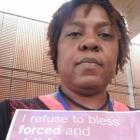Several years ago, I went in search of food in a foreign country. Spring had just begun to show her face, and though the air was nippy, it was a beautiful day to walk. The wonderful aroma of barbeque assailed my senses and I virtually floated into the restaurant and placed my order.
On my way home, I slowly realized that I was alone in an unfamiliar section of the neighbourhood. Almost immediately a squad car drove slowly past the intersection ahead of me. As this was shortly after the Trayvon Martin incident, I was immediately and painfully aware of my dress – sweatpants, turtleneck and a warm top (hoodie) – the typical dress of persons targeted in racial profiling.
I recalled the stories I had heard in the news; the experiences of friends and even subtle acts of discrimination. Quickly assuring myself that as a woman innocent of any wrongdoing, I had no reason to worry, I continued my leisurely stroll. Then the squad car passed as slowly as before, and I experienced TRUE fear. The moment the car passed; I rushed to the safety of home.
When I shared my experience, someone commented that I was safe and unlikely to be the victim of harassment or racism in that town, I was struck by the irony of the situation. The difference in reality for persons ‘of colour’ and persons ‘without colour’ was painfully clear.
Unfortunately, racism is systemic and insidious, visible especially to those who have been marginalized, excluded, victimized and abused through the various iterations of privilege and power.
This is contrary to the biblical interpretation of humanness and a violation of human rights. In the first Creation narrative, one hears that humanity is made in God’s likeness!!! (Genesis 1:26-28)
With zero exceptions.
No statute of limitations applied. No visa required. They are created “… free and equal in dignity and rights … without distinction of any kind, such as race, colour, sex, language, religion, political or other opinion, national or social origin, property, birth or other status.” (Universal Declaration of Human Rights)
Most persons of African descent or with visible non-white heritage are very familiar with racial profiling and/or stereotyping; including the dangers of ‘Driving/Walking while Black’ and the assumption of them being ‘guilty before proven innocent’. And, although men are likelier targets than women, the impact is simultaneously mental, emotional, psychological and physical.
Mothers worried about children arriving late (wondering: have they become victims of rape, brutality or incarceration?); spouses feeling impotent to protect their families; resulting in increased cases of abuse, especially domestic partner violence.
A colleague remembers the dawning of awareness of racial differentiation as a migrant and recognising that racism is contextual. Thus, a male of African descent in Diaspora quickly becomes accustomed to seeing women (and men) show very visible signs of discomfort in their presence. And the learned, though seemingly instinctual racial and xenophobic responses to non-white, in particular African (descended) persons, is very real all over the world.
This however, is not the end to which we are called. Rather, in keeping with our understanding that ALL are created in God’s likeness, we strive for a world without rape or violence, where women and men are free to walk and work and play and pray without fear of discrimination simply because of one’s race. For violence imbibed begets a cycle of violence which seems never to end.
And so we fight … against powers, and (systemic racist) structures in high places. In our work, in our play, when we work and when we play. All of us, brown, white and black. Men and Women. Together to end violence and discrimination.
Today is Thursday; what are you combatting today?







